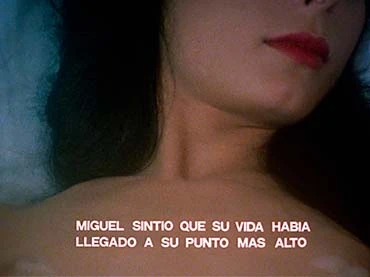-
Friday, 9 September 2022 – 7pm / Second session: Saturday, 24 September 2022 Sabatini Building, Auditorium
Gonzalo García-Pelayo. Así se rodó Carne quebrada (The Filming of Broken Flesh)
Spain, 2021, colour, original version in Spanish, digital archive, 70'
Tickets— Presentation and conversation with Gonzalo García-Pelayo and the film crew in both sessions
Así se rodó Carne quebrada (The Filming of Broken Flesh) is based on the behind-the-scenes of a film with a plot that crosses over and is confused with the real story that happens during filming. In Carne quebrada, the film being shot, a group of friends regularly get together to experiment with sex and partner relationships. The director, a renowned underground film-maker, seeks to reflect two obsessions in his new film: journeys as a vital, aesthetic and revelatory experience and sex as the driving force of desire and human evolution.
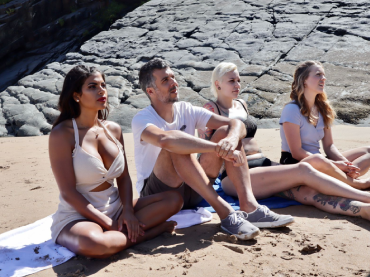
-
Saturday, 10 September 2022 – 7pm / Second session: Thursday, 29 September 2022 Sabatini Building, Auditorium
Gonzalo García-Pelayo. Tu coño (Your Pussy)
Spain, 2022, colour, original version, digital archive, 70’
Tickets— Presentation and conversation between Gonzalo García-Pelayo and the film crew in both sessions
A film which centres on a young and recently married couple in which the man, a young artist, only thinks about having sex with his wife, his sole model for videos and sculptures, around the clock and all over their new home. Despite almost being x-rated due to its explicit sex, it moves away from any convention associated with the porno genre.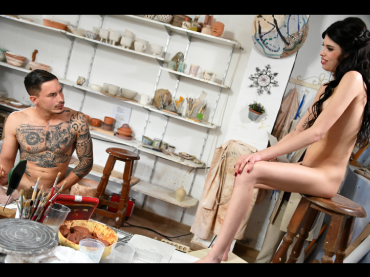
-
Friday, 23 September 2022 – 7pm / Second session: Friday, 30 September 2022 Sabatini Building, Auditorium
Gonzalo García-Pelayo. Alma quebrada (Broken Soul)
Spain, 2021, colour, original version in Spanish, digital archive, 74’
Tickets— Presentation and talk by Gonzalo García-Pelayo and the film crew in both sessions
A film director goes on a journey to look for locations for her next film. An admirer of Alain Resnais and experimental film, she tries to create a story in which her own biography mixes with that of a singer-songwriter she had a relationship with in the past. Among quotes from mystical Spanish literature, by Saint John of the Cross and Saint Teresa of Ávila, García-Pelayo returns to the creative journey as an element of salvation, the backbone of his 10+1 films.
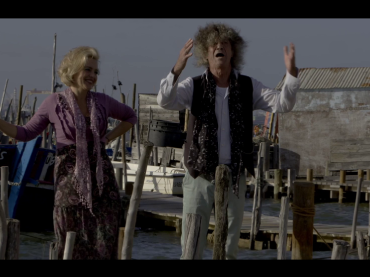
-
Saturday, 12 November 2022 Sabatini Building, Auditorium
Pedro G. Romero y Gonzalo García-Pelayo. Siete jereles (Seven Jereles)
Spain, 2022, colour, original version Spanish, digital archive, 75’
Tickets— Presentation and conversation between Pedro G. Romero and Gonzalo García-Pelayo. Closing flamenco concert by José de los Camarones
The only session of this film, which continues the collaboration between Pedro G. Romero and Gonzalo García-Pelayo that started in Nueve Sevillas (Nine Sevilles, 2020), in which flamenco was explored as a psychogeography of the city’s history, people and places. The different characters are lived through and traversed by the superior force of flamenco culture and history, conceived as a space which congregates the marginal, subordinate and racial in Spain’s history. A stampede of horses crosses the centre of Jerez, passing by seven mythical places in the city’s nightlife. In them, seven shots-sequences unfold to show three performances combining flamenco, history and the avant-garde. The screening opens and closes with a flamenco concert that sees out the series.
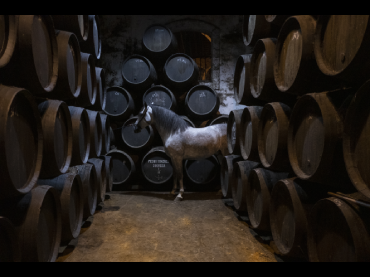
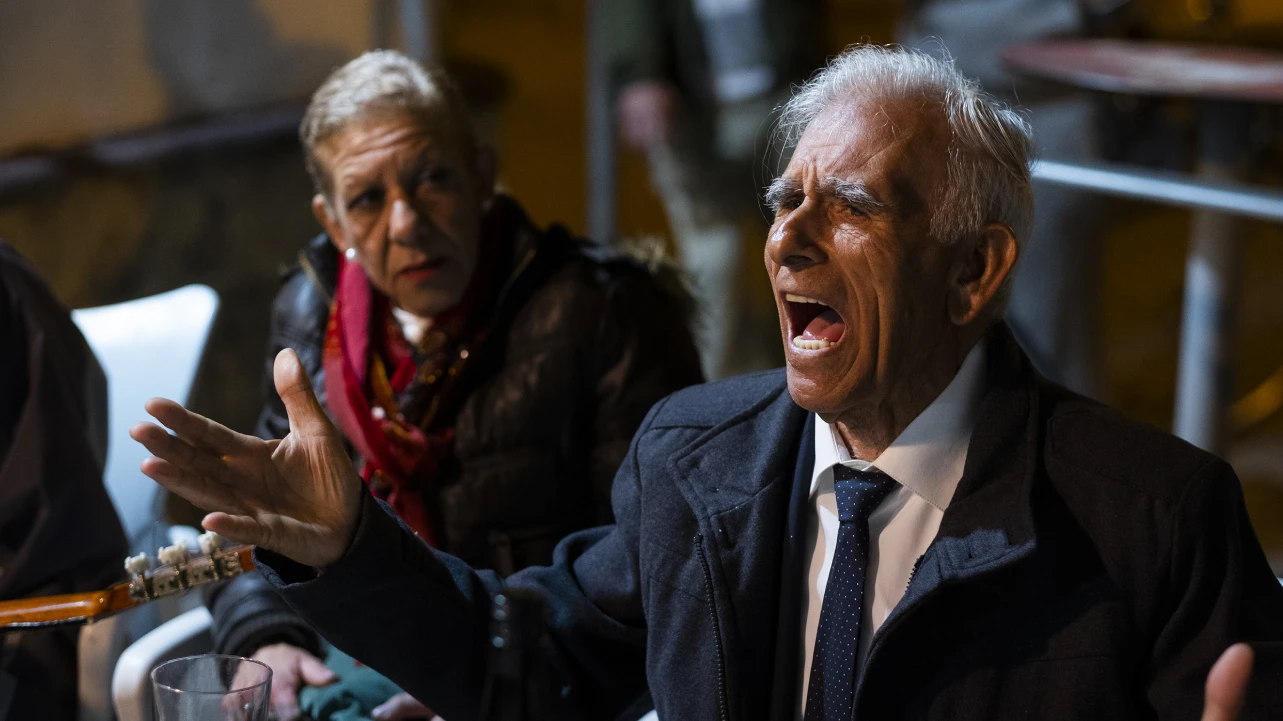
Held on 09, 10, 23, 24, 29, 30 Sep, 06, 07, 08, 13, 14, 15, 20, 21, 22, 27, 28, 29 Oct, 03, 04, 05, 10, 11, 12 Nov 2022
The Museo Reina Sofía and Cineteca Madrid jointly organise the second part, and conclusion, of the retrospective devoted to the films of Gonzalo García-Pelayo (Madrid, 1947) with the international premiere of one of contemporary cinema’s most ambitious projects: the production of eleven feature-length films made by the director between 2021 and 2022.
Gonzalo García-Pelayo is a cult film-maker within the landscape of new European film, following his retrospectives at Viennale (2013) and Jeu-de-Paume (2014) and his premieres at BAFICI (2022), in the spirit of early Jean-Luc Godard and with traces of Michelangelo Antonioni and Ingmar Bergman. Manifestations of counterculture, experimentation with film language, the non-distinction between fiction and documentary and the desire for a society to emerge after the dictatorship in Spain characterised García-Pelayo’s film practice from 1975 to 1986, explored in the first part of this retrospective: Stop Prohibiting Because I Can’t Disobey Everything. The Films of Gonzalo García-Pelayo. After a lengthy hiatus, in which he shelved his film-making to focus on music production, publishing work, the mathematical speculation of gambling and the financial system, this against-the-grain director returned to affirm the excess and rupture of any convention.
The Year of 10+1 Films is a project bearing little resemblance to the filmed diary or films about daily life. Rather, it sustains the thematic coherence and conceptual structure of his original work. These eleven pictures — one made in collaboration with Pedro G. Romero and another with Paco Campano — are imbued with common ideas and elements which impart a unique identity to the series. One such example is his vision of cinema as a kind of emotional geography. The films cross places visited previously by the film-maker (Kerala, Tamil Nadu, Kazakhstan, Tierra de Fuego, Andalusia, Alentejo, etc.) and characters which, as in the films of Jean-Marie Straub and Danièlle Huillet, resonate with and reverberate in these places to reflect the histories and feelings they awaken. Moreover, García-Pelayo uses the same cast of actors to play roles across the eleven films — a technique used by Fassbinder to introduce an anti-actor notion of performance — and to share an element of metafilm, film inside film, a constant in his work since Vivir en Sevilla (Living in Seville, 1978). Other common ideas among them are music (in a range of genres) as an expression of the storyline, the philosophical conversations between characters and sex as a torrential force, alluding, in line with the paradigm of Surrealist mad love, to the triumph of instinct over culture. The zenith of the 10+1 films is a numerical calculation that adheres to a basic principle: accelerating the average of the usual filming time in Spanish cinema (three years for a film) up to 33 times, the speed most commonly used to produce vinyl records. Thus, García-Pelayo returns with an unparalleled film corpus to show how film is a way of life before being an industry or profession.
These eleven films are screened between the Museo Reina Sofía and Cineteca Madrid.
Organised by
Museo Reina Sofía and Cineteca Madrid
Curators
Chema González (Museo Reina Sofía) and Luis E. Parés (Cineteca Madrid)
Más actividades

Aesthetics of Peace and Desertion Tactics
8 October 2025 – 24 June 2026
The study group Aesthetics of Peace and Tactics of Desertion: Prefiguring New Pacifisms and Forms of Transitional Justice proposes a rethinking—through both a theoretical-critical and historical-artistic lens—of the intricate network of concepts and practices operating under the notion of pacifism. A term not without contestation and critical tension, pacifism gathers under its name a multiplicity of practices—from anti-militarism and anti-war movements to non-violence activism—while simultaneously opening urgent debates around violence, justice, reparation, and desertion. Here, pacifism is not conceived as a moral doctrine, but as an active form of ethical and political resistance capable of generating aesthetic languages and new positions of social imagination.
Through collective study, the group seeks to update critical debates surrounding the use of violence and non-violence, as well as to explore the conflict of their representation at the core of visual cultures. In a present marked by rearmament, war, genocide, and the collapse of the social contract, this group aims to equip itself with tools to, on one hand, map genealogies and aesthetics of peace—within and beyond the Spanish context—and, on the other, analyze strategies of pacification that have served to neutralize the critical power of peace struggles. Transitional and anti-punitive justice proposals will also be addressed, alongside their intersections with artistic, visual, and cinematic practices. This includes examining historical examples of tribunals and paralegal activisms initiated by artists, and projects where gestures, imaginaries, and vocabularies tied to justice, reparation, memory, and mourning are developed.
It is also crucial to note that the study programme is grounded in ongoing reflection around tactics and concepts drawn, among others, from contemporary and radical Black thought—such as flight, exodus, abolitionism, desertion, and refusal. In other words, strategies and ideas that articulate ways of withdrawing from the mandates of institutions or violent paradigms that must be abandoned or dismantled. From feminist, internationalist, and decolonial perspectives, these concepts have nourished cultural coalitions and positions whose recovery today is urgent in order to prefigure a new pacifism: generative, transformative, and radical.
Aesthetics of Peace and Tactics of Desertion, developed and led by the Museo Reina Sofía’s Studies Management, unfolds through biweekly sessions from October to June. These sessions alternate between theoretical discussions, screenings, work with artworks and archival materials from the Museo’s Collection, reading workshops, and public sessions. The group is structured around sustained methodologies of study, close reading, and collective discussion of thinkers such as Judith Butler, Elsa Dorlin, Juan Albarrán, Rita Segato, Sven Lütticken, Ruth Wilson Gilmore, and Franco “Bifo” Berardi; historical episodes such as the anti-nuclear and anti-arms race movement in Spain; and the work of artists and activists including Rojava Film Commune, Manuel Correa and the Oficina de Investigación Documental (Office for Documentary Investigation), and Jonas Staal, among other initial cases that will expand as the group progresses.

Institutional Decentralisation
Thursday, 21 May 2026 – 5:30pm
This series is organised by equipoMotor, a group of teenagers, young people and older people who have participated in the Museo Reina Sofía’s previous community education projects, and is structured around four themed blocks that pivot on the monstrous.
This fourth and final session centres on films that take the museum away from its axis and make it gaze from the edges. Pieces that work with that which is normally left out: peripheral territories, unpolished aesthetics, clumsy gestures full of intent. Instead of possessing an institutional lustre, here they are rough, precarious and strange in appearance, legitimate forms of making and showing culture. The idea is to think about what happens when central authority is displaced, when the ugly and the uncomfortable are not hidden, when they are recognised as part of the commons. Film that does not seek to be to one’s liking, but to open space and allow other ways of seeing and inhabiting the museum to enter stage.

Intergenerationality
Thursday, 9 April 2026 – 5:30pm
This series is organised by equipoMotor, a group of teenagers, young people and older people who have participated in the Museo Reina Sofía’s previous community education projects, and is structured around four themed blocks that pivot on the monstrous.
The third session gazes at film as a place from which to dismantle the idea of one sole history and one sole time. From a decolonial and queer perspective, it explores films which break the straight line of past-present-future, which mix memories, slow progress and leave space for rhythms which customarily make no room for official accounts. Here the images open cracks through which bodies, voices and affects appear, disrupting archive and questioning who narrates, and from where and for whom. The proposal is at once simple and ambitious: use film to imagine other modes of remembering, belonging and projecting futures we have not yet been able to live.

Remedios Zafra
Thursday March 19, 2026 - 19:00 h
The José Luis Brea Chair, dedicated to reflecting on the image and the epistemology of visuality in contemporary culture, opens its program with an inaugural lecture by essayist and thinker Remedios Zafra.
“That the contemporary antifeminist upsurge is constructed as an anti-intellectual drive is no coincidence; the two feed into one another. To advance a reactionary discourse that defends inequality, it is necessary to challenge gender studies and gender-equality policies, but also to devalue the very foundations of knowledge in which these have been most intensely developed over recent decades—while also undermining their institutional support: universities, art and research centers, and academic culture.
Feminism has been deeply linked to the affirmation of the most committed humanist thought. Periods of enlightenment and moments of transition toward more just social forms—sustained by education—have been when feminist demands have emerged most strongly. Awareness and achievements in equality increase when education plays a leading social role; thus, devaluing intellectual work also contributes to harming feminism, and vice versa, insofar as the bond between knowledge and feminism is not only conceptual and historical, but also intimate and political.
Today, antifeminism is used globally as the symbolic adhesive of far-right movements, in parallel with the devaluation of forms of knowledge emerging from the university and from science—mistreated by hoaxes and disinformation on social networks and through the spectacularization of life mediated by screens. These are consequences bound up with the primacy of a scopic value that for some time has been denigrating thought and positioning what is most seen as what is most valuable within the normalized mediation of technology. This inertia coexists with techno-libertarian proclamations that reactivate a patriarchy that uses the resentment of many men as a seductive and cohesive force to preserve and inflame privileges in the new world as techno-scenario.
This lecture will address this epochal context, delving into the synchronicity of these upsurges through an additional parallel between forms of patriarchal domination and techno-labor domination. A parallel in which feminism and intellectual work are both being harmed, while also sending signals that in both lie emancipatory responses to today’s reactionary turns and the neutralization of critique. This consonance would also speak to how the perverse patriarchal basis that turns women into sustainers of their own subordination finds its equivalent in the encouraged self-exploitation of cultural workers; in the legitimation of affective capital and symbolic capital as sufficient forms of payment; in the blurring of boundaries between life and work and in domestic isolation; or in the pressure to please and comply as an extended patriarchal form—today linked to the feigned enthusiasm of precarious workers, but also to technological adulation. In response to possible resistance and intellectual action, patriarchy has associated feminists with a future foretold as unhappy for them, equating “thought and consciousness” with unhappiness—where these have in fact been (and continue to be) levers of autonomy and emancipation.”
— Remedios Zafra

27th Contemporary Art Conservation Conference
Wednesday, 4, and Thursday, 5 March 2026
The 27th Contemporary Art Conservation Conference, organised by the Museo Reina Sofía’s Department of Conservation and Restoration, with the sponsorship of the Mapfre Foundation, is held on 4 and 5 March 2026. This international encounter sets out to share and debate experience and research, open new channels of study and reflect on conservation and the professional practice of restorers.
This edition will be held with in-person and online attendance formats, occurring simultaneously, via twenty-minute interventions followed by a five-minute Q&A.
